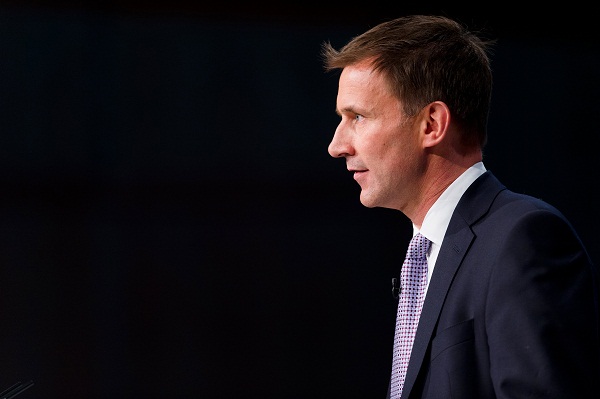Earlier this week my wife called to make a GP appointment for our daughter, who has been experiencing some worrying tummy pains. Middle of next week she was told, earliest. ‘It’s a pity you didn’t call at 8 o’clock,’ the receptionist chided. ‘We had several slots then, but now they’ve all gone.’ Silly us for prioritising getting the children to school at that time of the morning.
I expect that Jeremy Hunt would say that it is precisely this kind of thing – not a scandal, not a crisis, but just one of a million similar tiny rebuffs people experience at the hands of the NHS every week – that has led him to demand that everybody should be able to book their doctors’ appointments online by 2015. A quick glance at the internet will tell you that this is not the first time the promise has been made, but it has been promised again as part of the new NHS “Mandate”, which Mr Hunt launched yesterday. If this pledge is to mean anything more than a fleeting mention in a Sun newspaper headline, it is to the Mandate that we must turn in order to try to understand its significance. This is where the going gets tricky.
The first point to be made is that some GP practices already take online bookings, and found their way there without having to be empowered to do so by the Secretary of State. If it were both easier to take one’s medical business elsewhere, and if the financial incentives were stronger for practices to attract patients, then we might have expected competition to have done already what Mr Hunt hopes his Mandate will achieve in the next three years. Alas, however, market forces here seem to be pulling in different directions, including the news recently that five GPs have become millionaires by selling on their out-of-hours service company to a bigger concern. Good for them maybe, but it says something about the skewed way in which we channel money to the NHS that there is not a stronger interest in organising something as basic as online booking. It also says something about the NHS’ endemic lack of consumer responsiveness, for all the years of ‘putting the patient first’.
If we must rely on Whitehall’s writ for getting us our online bookings, how then will it will it? The bookings pledge is just one speck in a constellation of priorities and objectives gathered together under the Mandate, covering everything from stopping people dying before their time to giving the NHS a ‘broader role’ in society. Don’t worry though if your favourite isn’t there, because the Mandate is not in any case ‘exhaustive’. ‘Objectives’, we are told, are legal requirements on the NHS Commissioning Board and the ‘objective’ under which online booking appears is ‘to achieve a significant increase in the use of technology to help people manage their health and care.’ So what does that mean? If the surgery won’t let me book online by 2015 can I sue the pants off them? Or would I have to pursue my claim against Sir David Nicholson, chief executive of the Commissioning Board? Would I have a claim at all, since presumably still hanging on the phone at 8 o’clock in the morning wouldn’t constitute prima facie evidence of a failure by the NHS to increase significantly its use of new technology? I might just have to expire while waiting for the receptionist to pick up and get them under the premature death clause instead.
There are 26 pages of Mandate mandates, followed by a page and a bit that might loosely be said to be concerned with enforcement. This tells us that the Department of Health will hold the Board accountable for delivery and that every year it will publish an assessment of its performance. It stresses how, in the interests of fairness, it will ‘invite feedback’ from those it is assessing. What it doesn’t say is anything about what we, the punters, can do if the performance stinks.
The obvious answer might be that we can vote out Mr Hunt, except that the whole point of the Mandate is to take politicians away from these matters. Mr Hunt says that he wants to ‘loosen the reins’. Perhaps we should start electing the NHS Board itself – elected police commissioners will be such a success after all – in which case it would be fun to see if David Nicholson stood on behalf of his old outfit, the Communist Party.
The serious point is that the NHS is inundated with priorities, objectives, targets, guidance and Mandates. There is no space here to address the NHS Constitution, an entirely different set of rules apparently binding upon the Service, a refit of which was, in an amazing act of joined-up government, launched only a week ago by Mr Hunt’s deputy, Norman Lamb. I once asked a DH official which of the two contradictory sets of extant marching orders on diabetes the NHS was supposed to implement. I needn’t have waited the six weeks it took for the answer to come back, because I knew already: both. And they say that the BBC is too big to manage.
Richard Marsh is a former special adviser to two Conservative Secretaries of State for Health.






Comments